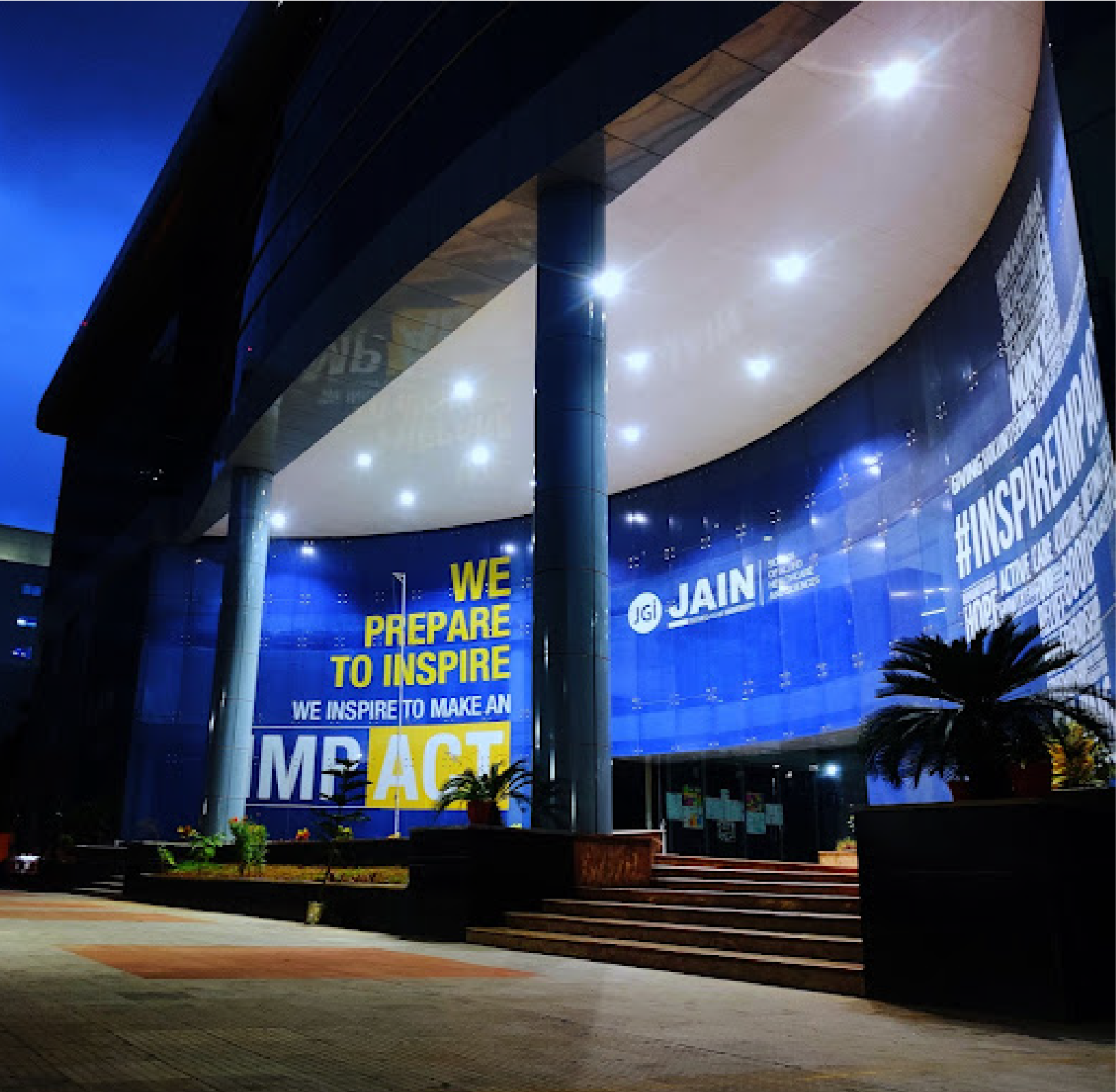Eligibility for Bachelors of Physiotherapy (BPT):
The minimum qualification for eligibility of Bachelor of Physiotherapy (BPT) is a pass with a minimum 50% in physics, chemistry and biology (botany & zoology), mathematics (10+2) or equivalent board recognized by any Indian University.
Contact us:
Phone Number: 9606978661, 6366828477
Email :[email protected]
Curriculum Structure:
JAIN (Deemed-to-be University) features a comprehensive curriculum covering essential subjects for Physiotherapy, guaranteeing a well-rounded education that prepares students for success in this dynamic field.
| Semester |
Name of the subject
|
| Semester 1
|
- Human Anatomy Theory
- Human Anatomy - 1 Practical
- Human Physiology - 1
- Human Physiology - 1 Practical
- Psychology
- Computer Applications and Technology
- Language
- English with composition
- Healthcare delivery system in India
- Medical Terminology, Record keeping
- Mind Management and Human Values
- Sports and Recreation/ Field Trip/Field Visit (Experiential Learning)
|
| Semester 2
|
- Human Anatomy - 2 Theory
- Human Anatomy - 2 Practical
- Human Physiology - 2 Theory
- Human Physiology - 2 Practical
- Biochemistry
- Sociology
- Basic Statistics and Introduction to Research
- Spoken Kannada
- Mind Management and Human Values
- PCL
- Community Orientation
- Facility Visits /Sports and Recreation
|
| Semester 3
|
- Pathology
- Microbiology
- Pharmacology
- Foundation of Exercise Therapy and Massage
- Theory Foundation of Exercise Therapy and Massage Practical
- Kinesiology and Biomechanics
- Principles of Management
- Biomedical Physics
- Community Orientation
- Facility Visits /Sports and Recreation
|
| Semester 4
|
- Progressive Functional Exercises Theory
- Progressive Functional Exercises Practical
- Physical Agents and Electrotherapy Theory
- Physical Agents and Electrotherapy Practical
- Emergency Medical Response, Nursing, First Aid, CPR, BLS and Infection
control
- Physiotherapy law and Ethics and Professional
Community need Analysis
- Project (PCL)
|
| Semester 5
|
- Physiotherapy Evaluation methods and Outcome Measures
- Exercise Physiology and Clinical Electrophysiology Theory
- Clinical orthopaedics and Traumatology
- General Surgery including burns and Plastic Surgery,
- Gynecology and Obstetrics and ENT General Medicine,
- Pediatrics and Psychiatry
- Physiotherapy in Community Based Rehabilitation
- PCL
- Integrated Seminars, Clinical Rotations
|
| Semester 6
|
- Physiotherapy in Orthopedics and Sports Theory
- Physiotherapy in Orthopedics and Sports practical
- Clinical Neurology and Neurosurgery
- Clinical Cardiology and Pulmonary Conditions
- Clinical Decision Making
- Elective
- Genetics
- Nutrition and Dietetics
- Clinical Rotation / clinical Rotation
|
| Semester 7
|
- Physiotherapy in Neurology and Psychosomatic disorder – Theory
- Physiotherapy in Neurology and Psychosomatic disorder – Practical
- Physiotherapy in General Medicine and General surgery - Theory Physiotherapy
- General Medicine and General Surgery – Practical Area of Specialization
- Orthopaedics – 1 Theory
- Neurology – 1 Theory
- Cardiopulmonary – 1 Theory
- Sports – 1 Theory
- Orthopaedics – 1 Practical
- Neurology – 1 Practical
- Cardiopulmonary – 1 Practical
- Sports – 1 Practical
- Elective
- Health Promotion and Fitness Vestibular Rehab, Falls and Balance
- PCL
- Clinical Postings
|
| Semester 8
|
- Physiotherapy in Cardiopulmonary and Intensive care Theory
- Physiotherapy in Cardiopulmonary and Intensive care Practical
- Human Gait, Orthotics and Prosthetics, Radiology and Imaging Theory Human
- Gait, Orthotics and Prosthetics, Radiology and Imaging Practical
- Area of Specialization
- Orthopaedics – 2 Theory
- Neurology – 2 Theory
- Cardiopulmonary – 2 Theory
- Sports – 2 Theory
- Orthopaedics – 2 Practical
- Neurology – 2 Practical
- Cardiopulmonary – 2
- Practical Sports – 2
- Practical CAPSTONE PROJECT
- Special Topic 1- Geriatric Rehabilitation Or Physiotherapy in Women Health
- Special topic 2-Testing and interpretation in Sports or Emergency Management in Sports Clinical
|
| Semester 9
|
|
Studies after Bachelor of Physiotherapy (BPT):
After completing a Bachelor of Physiotherapy (BPT) degree, individuals have various options for further studies and specialisation in the field of Physiotherapy or related areas of healthcare. Some potential avenues include:
Master of Physiotherapy (MPT):
Pursuing a master's degree in Physiotherapy allows for specialisation in areas such as orthopaedics, neurology, sports Physiotherapy, cardiorespiratory Physiotherapy, paediatric Physiotherapy, and more. MPT programs provide in-depth knowledge and advanced skills in a specific domain of Physiotherapy.
Clinical Residency or Fellowships:
Some healthcare institutions and universities offer clinical residencies or fellowships for physiotherapists who wish to gain specialised expertise in areas like sports medicine, musculoskeletal rehabilitation, or neurorehabilitation.
Postgraduate Diplomas:
Various postgraduate diploma programs are available in fields related to healthcare management, healthcare administration, or public health. These programs can broaden the scope of career opportunities beyond clinical practice.
Certifications and Short Courses:
Physiotherapists can also enhance their skills and knowledge by undertaking specialized certifications or short courses in specific treatment modalities, techniques, or emerging areas within Physiotherapy.
Career Progression after pursuing Bachelor of Physiotherapy (BPT):
| Duration |
Roles and responsibilities
| Salary |
| 0-3 years
|
Junior Physiotherapist / Intern
|
₹2,50,000 to ₹4,50,000
|
| 3-5 years
|
Physiotherapist / Senior Physiotherapist
|
₹4,50,000 to ₹7,00,000
|
| 5-10 years
|
Consultant Physiotherapist / Team Lead
|
₹7,00,000 to ₹12,00,000
|
| 10 years and beyond
|
Senior leadership roles involve managing departments, contributing to strategic planning, and overseeing the delivery of Physiotherapy services.
|
₹12,00,000 and above
|
Please Note: As individuals gain experience and expertise in BPT, they may take on more specialised roles, managerial positions, or move into education and research. Salaries can significantly increase with advanced certifications, additional qualifications, and leadership responsibilities.
Salaries can vary based on prevailing market dynamics and individual skill levels.


